Seal station by star architect Wadden Sea World Heritage Centre, Lauwersoog (NL)
Europe's most modern seal hospital is located on the northern coast of the Netherlands. Designed by renowned architect Dorte Mandrup, the Wadden Sea World Heritage Centre not only cares for seals, but also researches their habitat. A travel tip for nature lovers – and architecture enthusiasts.
Did you know that the seal is the largest predator in the Netherlands? That global biodiversity depends to a great extent on the Wadden Sea ecosystem? And how was it again with the moon, ebb, and flow of the tides?
You can learn all this and much more at the Wadden Sea World Heritage Center in Lauwersoog, the Netherlands. The center features an interactive museum open year-round, as well as a research facility complete with an intensive care unit for seals.
Sick or injured animals, as well as orphaned seal pups, are given a temporary safe haven in Lauwersoog. They are cared for by veterinarians and keepers until they are fully recovered and strong enough to be released back into the wild.
The seal hospital includes multiple intensive care units, an operating room, and various pools.
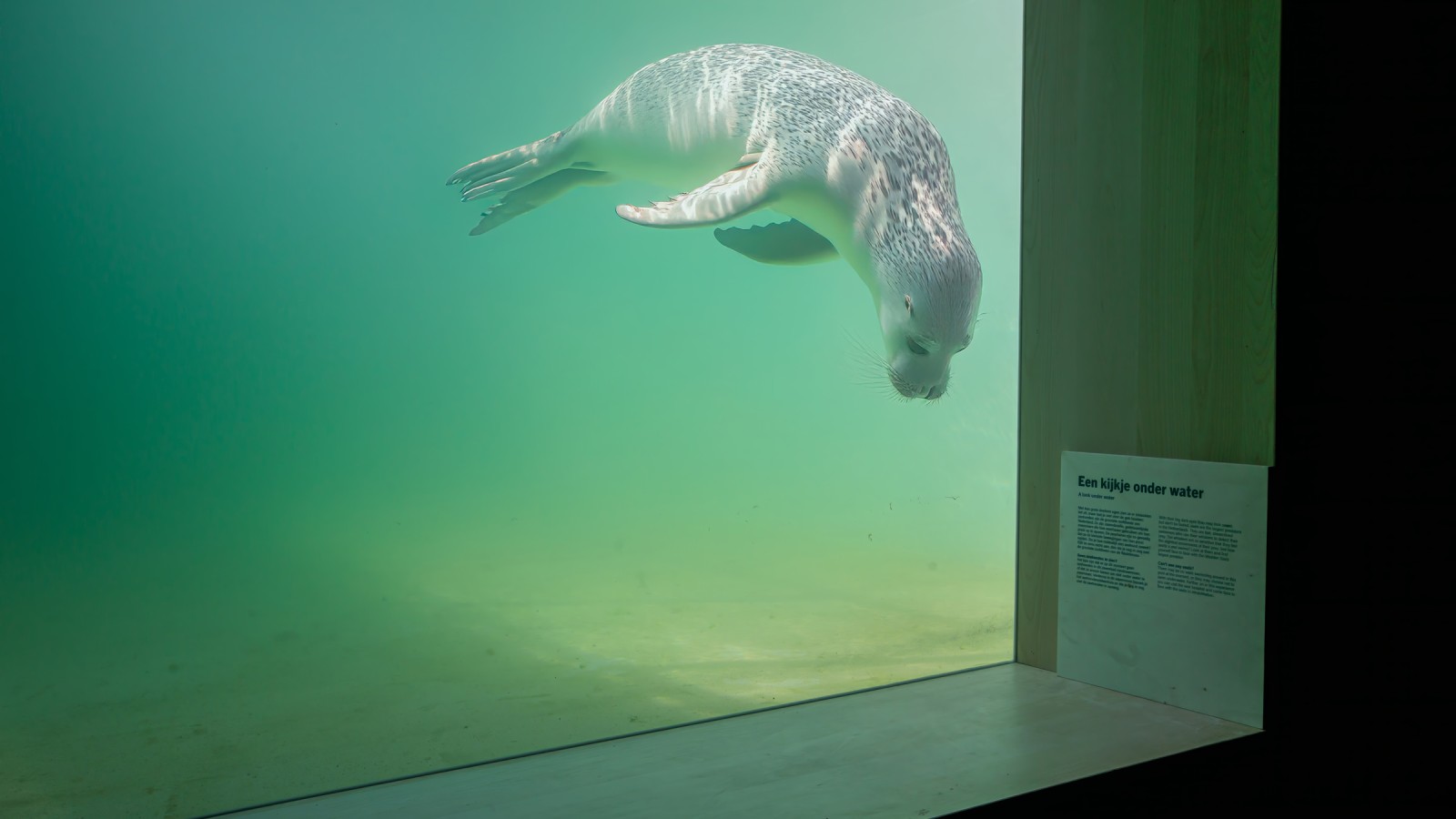
Rough seas, robust materials
The new building was designed by Danish star architect Dorte Mandrup, one of the most influential designers of her generation. It was created to withstand the harsh coastal climate and the unique location outside the dikes.
Durable materials such as wood were used for sunshades, façades, and interior cladding. Vertical wooden slats in front of the glass façade maximize natural light while reducing direct sunlight and minimizing light pollution during evening and nighttime hours.
Behind the scenes, Geberit technology ensures smooth operations: Mapress copper piping supplies drinking water, while the Pluvia roof drainage system uses negative pressure to effectively draw rainwater off the flat roof. There, on the roof, the seals swim in their pools, which are filled with purified seawater.
Visitors can observe the animals up close – even during feeding time: at first, the seals are given an easily digestible salmon porridge, then they are switched to solid food and fed herring. The perfect nourishment to help them regain their strength and return to the wild as soon as possible...
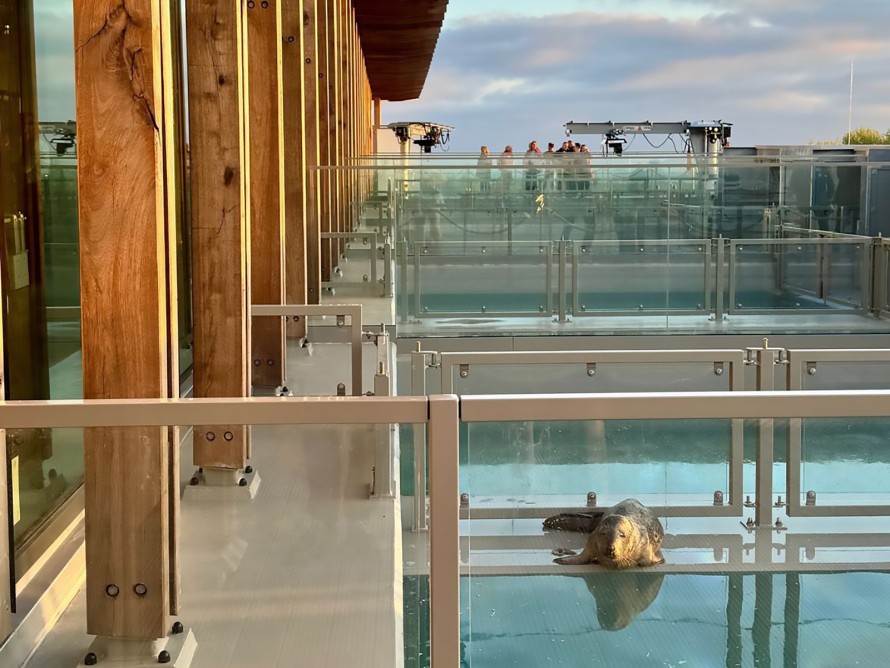
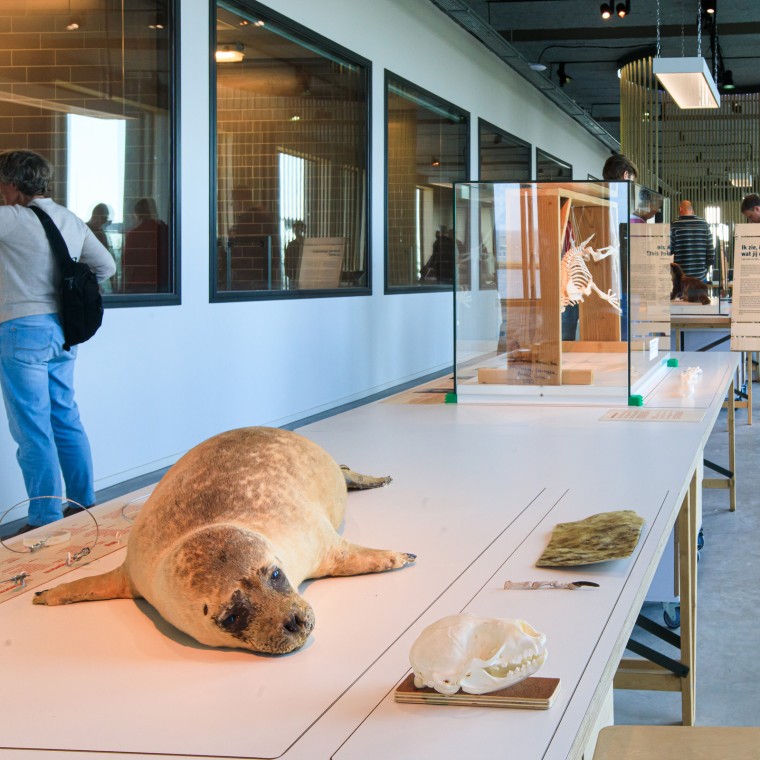
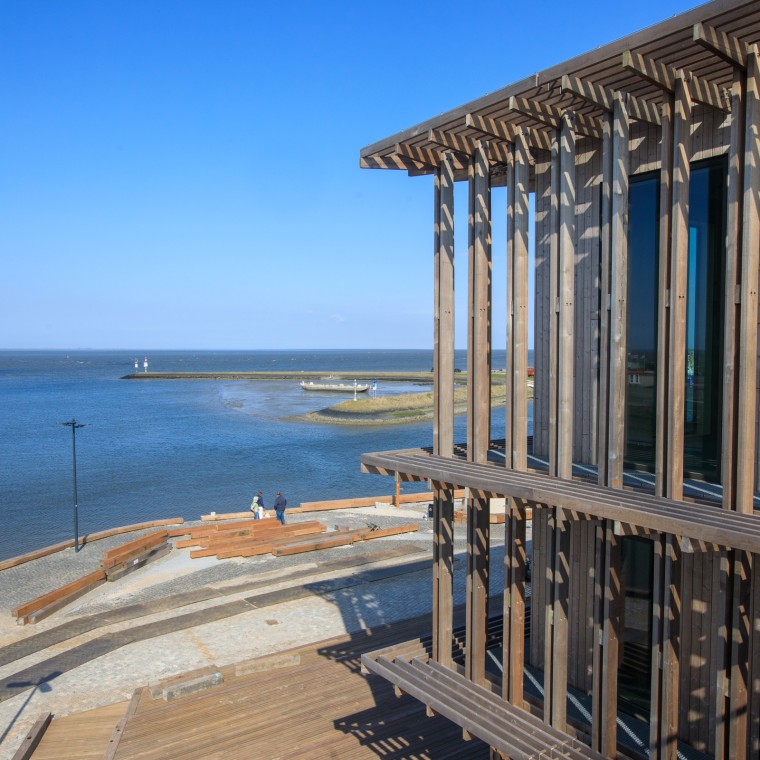
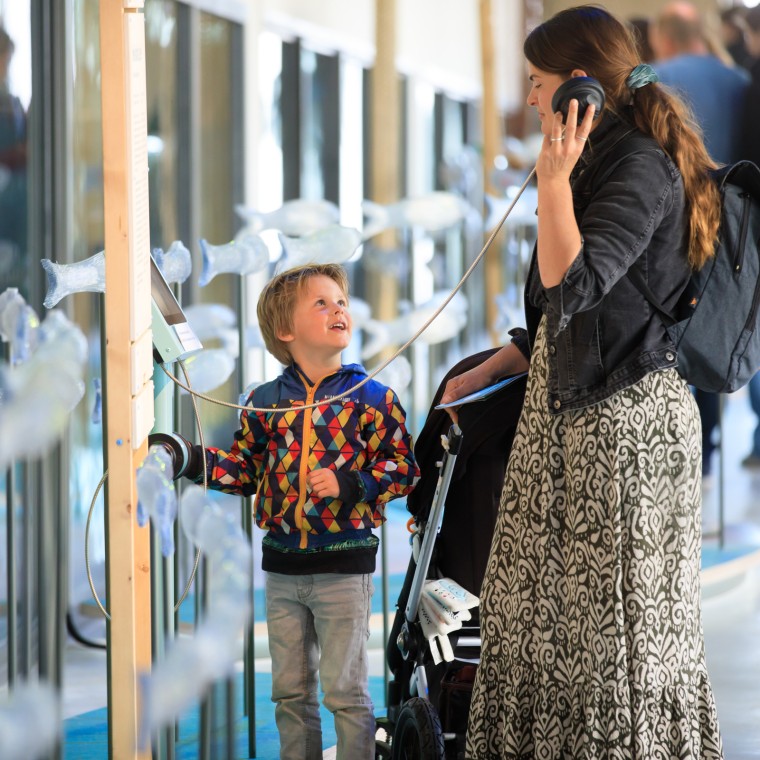
Facts
Geberit Know-how
Geberit products used in the project
- Geberit Pluvia roof drainage system
- Geberit Mapress copper pipe system
- Geberit 300 Basic 28 WC, wall-hung and rimfree
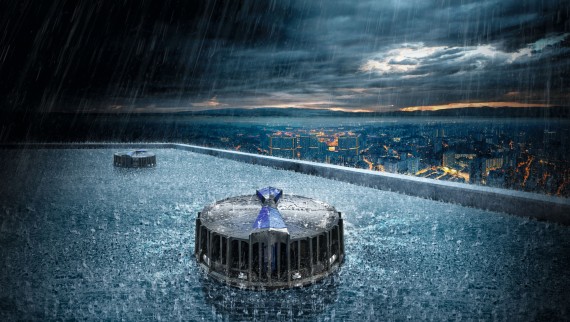
Geberit Pluvia
The syphonic roof drainage system ensures efficient and reliable performance even during heavy rainfall. Geberit Pluvia impresses with its design flexibility during planning and its cost-effectiveness in both installation and operation.
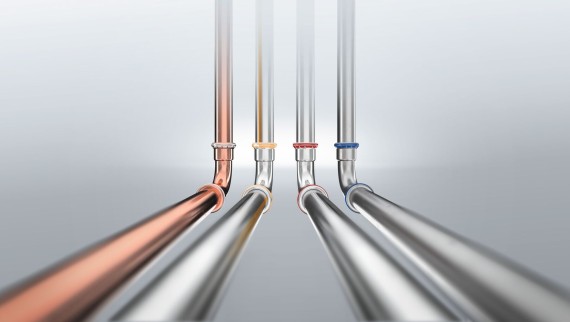
Geberit Mapress
Geberit Mapress is a tried and tested supply system for liquid and gaseous media. It can be used in cooling systems, heating systems, sprinklers and in industry or shipbuilding.
Toilets & toilet seats
Geberit offers everything for your WC from a single source. From rimless WCs and flush plates in various designs through to cisterns and toilet seats.
Architects
Architects
- Client: Stichting Werelderfgoedcentrum Waddenzee
- Architecture: Dorte Mandrup
- Completion: 2025